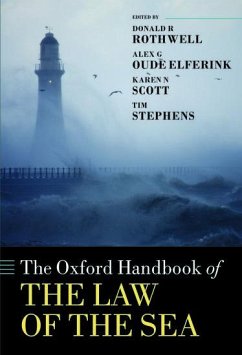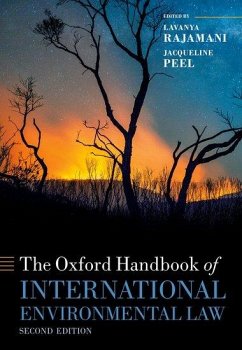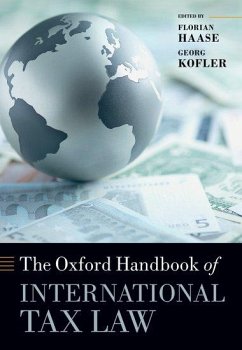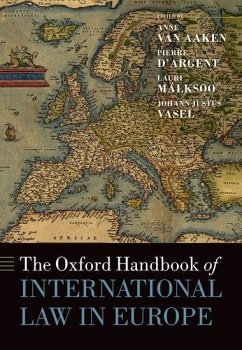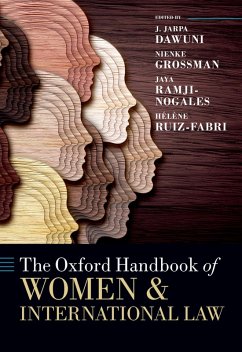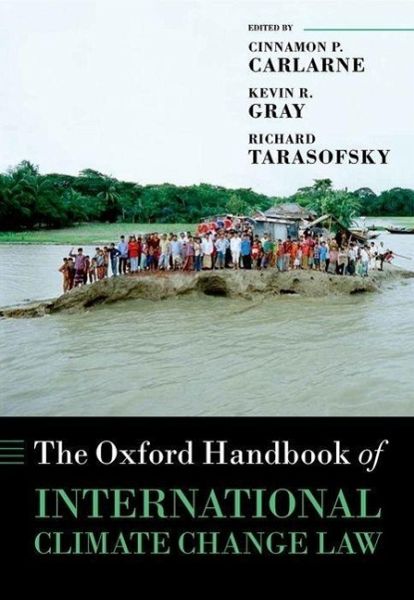
The Oxford Handbook of International Climate Change Law
Versandkostenfrei!
Versandfertig in über 4 Wochen
230,99 €
inkl. MwSt.

PAYBACK Punkte
115 °P sammeln!
Climate change presents one of the greatest challenges of our time, and has become one of the defining issues of the twenty-first century. The radical changes which both developed and developing countries will need to make, in economic and in legal terms, to respond to climate change are unprecedented. International law, including treaty regimes, institutions, and customary international law, needs to address the myriad challenges and consequences of climate change,including variations in the weather patterns, sea level rise, and the resulting migration of peoples.The Oxford Handbook of Intern...
Climate change presents one of the greatest challenges of our time, and has become one of the defining issues of the twenty-first century. The radical changes which both developed and developing countries will need to make, in economic and in legal terms, to respond to climate change are unprecedented. International law, including treaty regimes, institutions, and customary international law, needs to address the myriad challenges and consequences of climate change,
including variations in the weather patterns, sea level rise, and the resulting migration of peoples.
The Oxford Handbook of International Climate Change Law provides an unprecedented and authoritative overview of all aspects of international climate change law as it currently stands, with guidance for how it should develop in the future. Over forty leading scholars and practitioners set out a comprehensive understanding of the legal issues that surround this vitally important but still emerging area of international law. This book addresses the major legal dimensions of the problems
caused by climate change: not only in the content and nature of the international legal frameworks, which need implementation at the national level, but also the development of carbon trading systems as a means of reducing the costs of meeting emission reduction targets. After an introduction to the field, the
Handbook assesses the relevant institutions, the key applicable principles of international law, the international mitigation regime and its consequences, and climate change litigation, before providing perspectives focused upon specific countries or regions.
The Handbook will be an invaluable resource for scholars, students, and practitioners of international climate change law. It provides readers with diverse perspectives, bringing together interpretations from different disciplines, countries, and cultures.
including variations in the weather patterns, sea level rise, and the resulting migration of peoples.
The Oxford Handbook of International Climate Change Law provides an unprecedented and authoritative overview of all aspects of international climate change law as it currently stands, with guidance for how it should develop in the future. Over forty leading scholars and practitioners set out a comprehensive understanding of the legal issues that surround this vitally important but still emerging area of international law. This book addresses the major legal dimensions of the problems
caused by climate change: not only in the content and nature of the international legal frameworks, which need implementation at the national level, but also the development of carbon trading systems as a means of reducing the costs of meeting emission reduction targets. After an introduction to the field, the
Handbook assesses the relevant institutions, the key applicable principles of international law, the international mitigation regime and its consequences, and climate change litigation, before providing perspectives focused upon specific countries or regions.
The Handbook will be an invaluable resource for scholars, students, and practitioners of international climate change law. It provides readers with diverse perspectives, bringing together interpretations from different disciplines, countries, and cultures.



